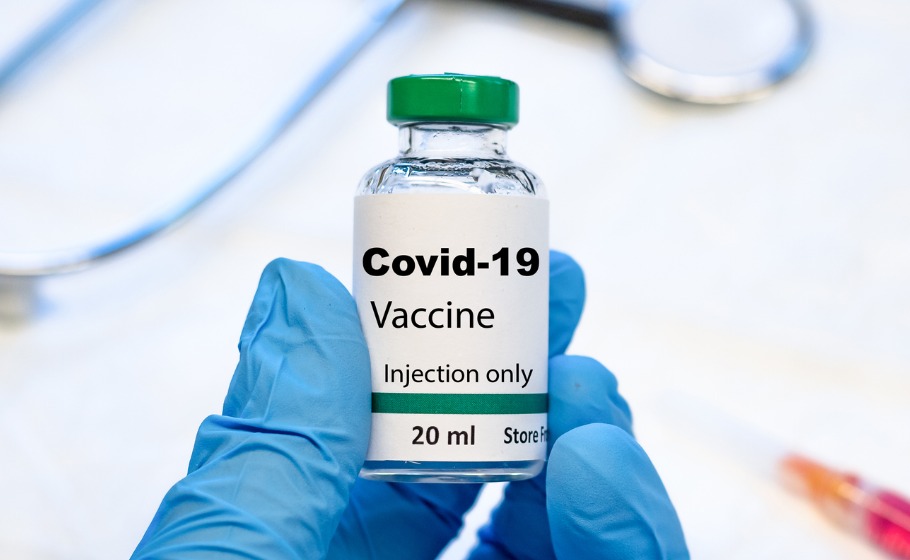
AstraZeneca claims breakthrough amid fears over COVID vaccines' side-effects

Amid reports of possible side-effects of prospective vaccines being developed, AstraZeneca said on Monday (November 23) its vaccine for the novel coronavirus, developed along with the University of Oxford, could be around 90% effective under one-dose regimen.
“This vaccine’s efficacy and safety confirm that it will be highly effective against COVID-19 and will have an immediate impact on this public health emergency,” Pascal Soriot, Astra’s chief executive, said in a statement.
The British drug maker’s preliminary trial results mark a fresh breakthrough in the fight against a pandemic that has killed nearly 1.4 million people and ruined the global economy.
Pfizer is likely to seek US government permission to release its vaccine by November-end, a move that not only holds promise for containing the pandemic but also sets up a tight time-frame to ensure consumers know what it will mean to get the shots.
The vaccine, and likely most others, will require two doses to work, injections that must be given weeks apart, company protocols show. Scientists anticipate that the shots will cause enervating flu-like side effects — including sore arms, muscle aches and fever — that could last days and temporarily put some people off work. And even if a vaccine proves 90 percent effective, the rate Pfizer touted for its product, 1 in 10 recipients would still be vulnerable. That means, at least in the short term, as population-level immunity grows, people can’t stop social distancing and throw away their masks, US media reported.
Also read:Oxford scientists expect COVID-19 vaccine data by Christmas
In the push to develop vaccines with unprecedented speed, there has been a large-scale plan to communicate effectively about those issues in advance, said Saad Omer, director of the Yale Institute for Global Health.
“The biggest tragedy would be if we have a safe and effective vaccine that people are hesitant to get,” said Dr Preeti Malani, chief health officer and a professor of medicine at the University of Michigan in Ann Arbor.
Also read:India’s COVID vaccine trials in key stages amid global studies’ success
Therese Raphael, a columnist for Bloomberg Opinion, said regulatory authorities are gearing up for a deluge in people reporting side effects when the new COVID-19 vaccines go into use. Even as vaccines like the one from Pfizer and BioNTech reach safety milestones and look set for regulatory approval, managing the reporting and follow-up of what are known as adverse drug reactions will be critical to keeping to the high levels of public participation needed for a vaccination program to be successful.
The US Centers for Disease Control and Prevention plans to send daily texts to those who are vaccinated for the first week and then weekly texts for six weeks, while the Food and Drug Administration will also be monitoring side effects in real time.
It’s not clear if the UK’s monitoring system will have similar capabilities by the time the vaccine is rolled out. The country’s Medicines & Healthcare Products Regulatory Agency issued an urgent tender notice (recorded last month in a European Union public procurement journal) for an artificial-intelligence software tool to help deal with the expected high volume of reported effects. (The roughly $2 million contract went to outsourcing firm Genpact.)
The agency didn’t mince words in explaining the reasons for the urgency: Its legacy system would be overwhelmed by the volume of reports and could not be retrofitted to cope with the new vaccine. The absence of a new tool would hinder its ability to rapidly identify any potential safety issues within the covid-19 vaccine. “That in turn would represent a direct threat to patient life and public health.”
A reported adverse effect doesn’t mean a vaccine isn’t safe, and in some cases it may not be related to the inoculation at all. But ADRs help doctors, pharmaceutical companies and regulators monitor the impact of licensed drugs. They can identify misuse of a drug, compromised batches or simply side effects that need to be disclosed even if it doesn’t change the safety profile.
The UK’s Yellow Card system might receive one report per 1,000 immunizations. But if you dramatically increase the number of people being vaccinated, the amount of reported effects can be expected to increase proportionately. With COVID vaccines likely to go to the oldest and most vulnerable first, there may be even more ADRs reported than usual. Even if they aren’t related to the vaccine, they can spook the public.
The side-effect reports have the potential to be a gold mine for anti-vaxxers. Vaccine skepticism is higher in the US, but the UK bears the scars of the now thoroughly debunked linking of the MMR vaccine to autism. In a survey last week by the London Assembly Health Committee, only three in five respondents said they are likely to or will definitely get vaccinated; almost half of those who said they wouldn’t or might not do so cited lack of trust in government guidance or drug companies.


